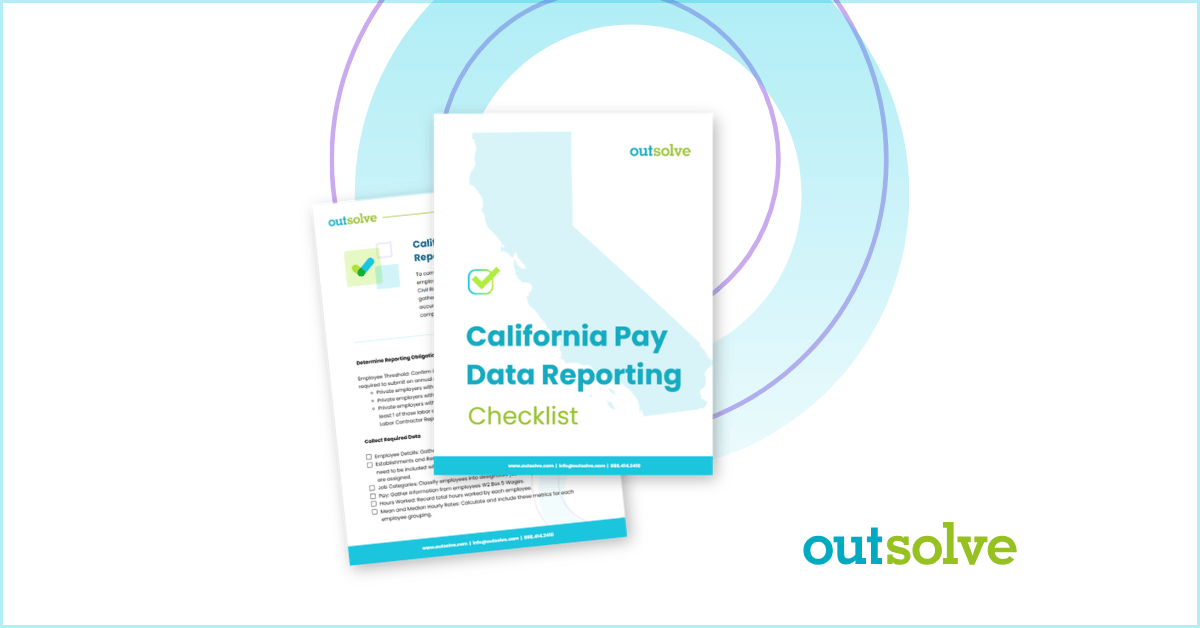4 min read
How Salary Benchmarking Supports Recruitment and Retention
 Sarah Jane Hannan
:
Oct 16, 2025 7:58:06 AM
Sarah Jane Hannan
:
Oct 16, 2025 7:58:06 AM

How do you attract and keep top performers in a job market where candidates have endless options, expectations are high, and pay transparency is the new normal? HR practitioners are asking themselves these questions every day.
Compensation is a major part of a company’s recruitment and retention strategy. More than ever before, salary information is now widely shared and accessible online, and employees talk more freely about what they earn. Companies that fall behind in compensation planning could see it negatively impact their recruitment pipelines and retention rates.
That’s where salary benchmarking comes in.
When done right, salary benchmarking becomes a company’s strategic asset. It builds competitive pay structures based on real data as opposed to guesswork, which helps make sure that you're neither underpaying nor overcompensating. Instead, you find that happy medium that attracts talent and keeps them around.
Let’s look at this topic more closely. Here are three key takeaways you’ll learn in this article:
- What salary benchmarking really is.
- How salary benchmarking supports both recruitment and retention, as well as business success.
- Best practices for implementing salary benchmarking.
What Is Salary Benchmarking?
Let’s start at the beginning. Salary benchmarking, also known as compensation benchmarking, is the process of comparing your company’s pay rates and benefits to those of similar roles in your industry, geographic area, and job market. Think of it as a regular health check or audit of your compensation strategy.
This isn’t just about pulling a few numbers from the internet. Effective benchmarking involves research and digging into reliable data sources like:
- Third-party salary surveys
- Industry compensation reports
- Regional labor market studies
- Government data
- Professional associations
Why is this important? Because what you think a job is worth and what the market is paying can be two very different numbers. Using accurate, updated data allows your compensation packages to be competitive, fair, and in sync with the current market.
How Does Benchmarking Support Recruitment?
- Helps Attract Top Talent: The bottom line is that today’s candidates know their worth. They’re doing their own research, checking salaries on social media platforms and comparing offers. If your offer isn’t in line with market standards, they’ll most likely recognize this and move on quickly.
Salary benchmarking makes sure your job offers are not only fair, but attractive. Employees who feel their salaries are in line with the market are likely to stay with your company. - Provides Industry Competitiveness: Benchmarking gives you a direct look into what your competitors are offering. Are you losing engineers to that tech company down the road? Or struggling to hire top sales talent in a specific region? With benchmarking data, you can pinpoint where you’re falling short and adjust accordingly.
It’s about more than matching salaries and ultimately about positioning your company as competitive in the talent marketplace. - Gives Employers a Brand Boost: Offering competitive pay not only helps you hire, but it also builds your company’s reputation. When candidates and employees see that you pay above, or even at, market rates, your company becomes an employer of choice. It tells people that you value your team, that you invest in your workforce, and that you’re a serious player in your industry.
How Does Benchmarking Drive Retention?
- Increases Employee Satisfaction and Loyalty: Employees might join for the mission, the manager, or the team, but they stay for the whole package. Pay is a major part of that. When compensation is competitive, employees feel valued, and they’re far less likely to start looking elsewhere.
If they don’t feel fairly compensated, they’ll often leave silently, even before they submit their resignation letter. - Promotes Fairness and Transparency: Internal equity matters. If two employees doing similar work are being paid significantly different salaries, it breeds resentment, even if it's unintentional. This is also known as pay compression and it is becoming more common with the rise of states enacting pay transparency laws.
By conducting regular compensation benchmarking, you not only keep up with external markets, but you also maintain fairness within your organization. This kind of transparency builds trust, boosts morale, and cultivates a culture where people feel recognized and respected. This is the “secret sauce” for employee retention. - Fosters Long-Term Commitment: Competitive pay sends a powerful message that “we’re investing in you.” That level of commitment from an employer often results in loyalty from employees. It reduces job-hopping and strengthens your company culture over time.
Best Practices for Implementing Salary Benchmarking
We looked at what salary benchmarking is and how it supports recruitment and retention. Now that you understand that what are some best practices you should consider when implementing salary benchmarking? Here are some key action items:
- Regular Reviews
The market isn’t static, and your compensation strategy shouldn’t be either. It’s best to review your salary data at least annually, if not more often, depending on your industry. New laws, economic shifts, or changing skill sets can all impact compensation norms. Don’t wait until you’re losing employees to realize your pay structure is outdated. - Make Data-Driven Decisions
Instinct and experience are important, but when it comes to pay, data should drive your decisions. Use reputable sources and partner with trusted benchmarking providers to confirm that your insights are grounded in real-time market information. - Incorporate Market Trends
Cost of living shifts. Tech salaries soar. Entry-level positions in one region might demand higher compensation than mid-level roles in another. Salary benchmarking isn’t just about looking at current averages, it’s about analyzing trends and projecting forward. Build flexibility into your compensation plans to respond to changing market conditions.
The Impact of Benchmarking on Business Success
Not only does salary benchmarking affect recruitment and retention, but it can also have an impact on your company’s overall success. Here’s how:
- Attracting Skilled Workers
Simply put, top talent goes where the pay is fair, transparent, and competitive. Compensation benchmarking benefits your hiring team by equipping them with realistic salary ranges that help close offers faster and with greater success. - Reducing Turnover Costs
Replacing an employee can cost anywhere from 30% to 200% of their annual salary. That's not just recruitment costs, it’s also lost productivity, onboarding time, and team disruption. By investing in competitive pay upfront, you significantly reduce these long-term costs. Think of benchmarking as a proactive retention strategy that pays off. - Productivity and Engagement
People generally perform better when they feel valued, and pay is one of the most tangible forms of value recognition. Fair compensation leads to higher engagement, which in turn drives productivity, innovation, and overall business success.
With Pay Transparency Laws Increasing, You Can't Afford to Fall Behind
The days of keeping salary information “top secret” are gone. Between social media conversations, public salary databases, and new pay transparency laws, employees are more informed than ever.
If you’re not benchmarking now, then you risk falling behind. Your compensation practices will eventually come under scrutiny, whether you like it or not. Being proactive isn’t just smart, it’s necessary.
What Salary Benchmarking Means for Your Organization
To compete in today’s talent market, you need more than good intentions, you need good data. Salary benchmarking gives you the insight to offer competitive pay, improve employee satisfaction, and build a loyal, high-performing team.
It’s not a “nice to have” anymore, but a strategic necessity and advantage.
At OutSolve, we offer reliable, customized benchmarking services that help HR teams build smarter, more competitive compensation strategies. Whether you're hiring for growth or planning to retain your best talent, we’ve got the tools and expertise to partner with and support you.
Let’s make your compensation strategy work for you. Contact us today to learn more and get started!
Sarah Jane Hannan plays a vital role in leading compensation projects at OutSolve, where her ability to work efficiently and collaboratively with clients ensures the successful execution of complex initiatives. She brings expertise in external market benchmarking and supports the design and interpretation of Multiple Linear Regression analyses, translating complex data into actionable recommendations. Sarah Jane is an expert in state pay transparency laws and provides guidance to companies nationwide on how to remain compliant with the requirements. She is also the product manager for compensation consulting services at OutSolve, helping to develop new products and make adjustments to existing products as laws change and evolve. Her background in Non-Discrimination in Employment, EEO-1 reporting, and VETS-4212 reporting strengthens her understanding of compliance and workforce equity. With a B.S. in Psychology from Northwestern State University and an M.S. in Industrial/Organizational Psychology from Southeastern Louisiana University, Sarah Jane applies analytical rigor and organizational insight to help clients build fair, defensible, and competitive compensation programs.
Weekly OutLook
Featured Posts

5 Key Compliance Items HR Can’t Afford to Ignore

HR Compliance Checklist: What Every HR Pro Needs to Know
Related Posts
.png)
Beat the Rush: Outsource Federal Reporting Requirements in Q1
The beginning of the year usually feels like a fresh start that brings new business initiatives, goals, and strategies. The work you do between...

California Pay Data Report Checklist for HR Professionals
With changes regarding California pay data reporting taking effect in 2026 and 2027, this is the checklist you need to stay confident that you've got...

What You Need to Know About the Rhode Island Pay Transparency Law
Pay transparency continues to gain traction at the state level, and Rhode Island is no exception. Let’s dive into the details of how this law works...



